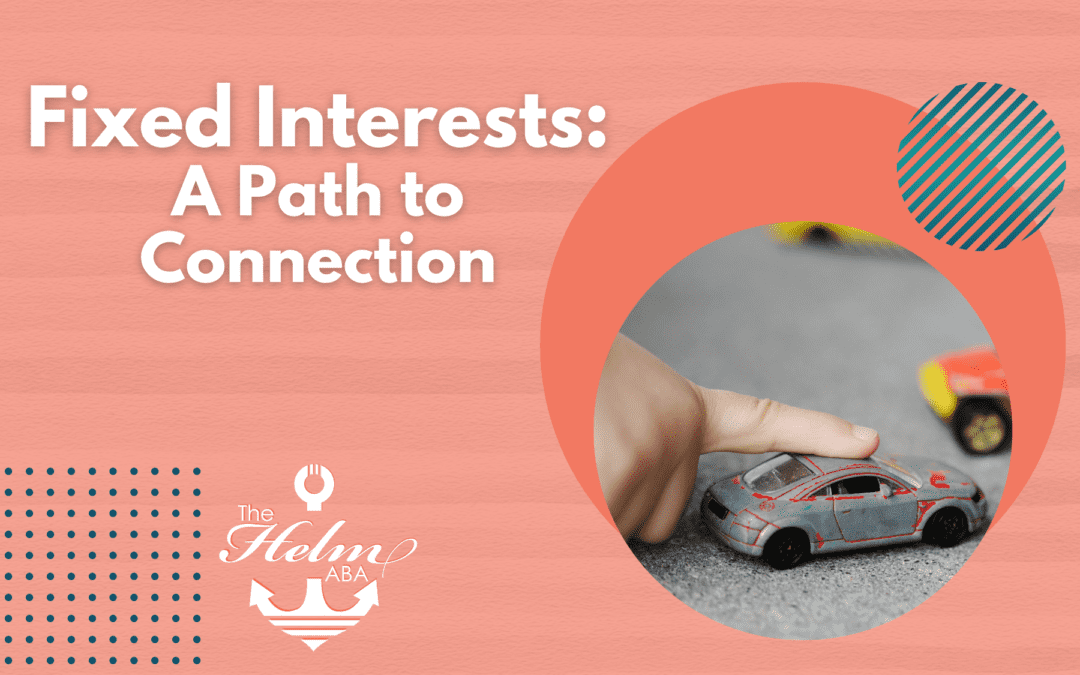Connecting with your child with autism can be a deeply rewarding experience, but it often requires a unique approach that respects their individual needs and interests. One of the most powerful ways to strengthen your bond is by engaging with their fixed interests – those topics, activities, or objects they are particularly passionate about. Here’s how you can use their special interests to build a deeper connection and support their development.
1. Understand and Embrace Their Fixed Interests
Children with autism often have intense interests in specific subjects, whether it’s dinosaurs, trains, a particular video game, or a collection of facts about space. These interests are more than just hobbies; they can be a source of comfort, joy, and a way for your child to express themselves. Instead of seeing these fixed interests as limiting, try to view them as a window into your child’s world.
How to Engage:
- Learn About Their Interests: Take the time to learn about what they love. If they’re fascinated by dinosaurs, read books, watch documentaries, or visit museums together. Showing genuine interest in their passion demonstrates that you value their preferences and helps you connect on a deeper level.

- Share in Their Excitement: Get excited about their interests with them. Ask questions, listen to them talk about their favorite topic, and share in their joy. This not only strengthens your bond but also boosts their confidence and communication skills.
2. Use Interests as Learning Tools
Fixed interests can be powerful tools for learning. By incorporating your child’s passions into educational activities, you can make learning more engaging and enjoyable for them.
How to Engage:
- Integrate Interests into Lessons: If your child loves trains, use train-themed activities to teach math, reading, or science. For example, you can count train cars to practice numbers, or read stories about trains to enhance literacy skills.
- Expand Their Knowledge: While it’s important to honor their specific interest, gently expanding their focus can help broaden their horizons. If they’re obsessed with a particular animal, introduce them to related topics like habitats, ecosystems, or other species.
3. Respect Their Need for Routine
Many children with autism thrive on routine and predictability, which can include their engagement with fixed interests. Understanding and respecting this need can help you build trust and provide a sense of security.
How to Engage:
- Create a Schedule: Incorporate time for their interests into their daily routine. Knowing that they have a designated time to enjoy their favorite activity can reduce anxiety and make transitions easier.
- Be Flexible: While routine is important, try to remain flexible when necessary. If your child is particularly engrossed in an activity, allowing extra time can show that you respect their engagement and are willing to adapt to their needs.
4. Foster Social Connections Through Shared Interests
Fixed interests can also be a gateway to social interaction. Encouraging your child to share their interests with others can help them develop social skills and form connections with peers.
How to Engage:
- Join Clubs or Groups: Look for clubs, groups, or online communities that focus on your child’s interest. Whether it’s a Lego club, a science group, or a fan club for a particular show, these spaces can provide a safe environment for socializing.
- Playdates with a Purpose: Arrange playdates with other children who share similar interests. This can make social interactions more comfortable and enjoyable for your child, as they have a common ground to connect over.
5. Balance Interests with New Experiences
While it’s essential to embrace your child’s fixed interests, introducing them to new activities and experiences is also important for their growth. Finding the right balance between their passions and new opportunities can help them develop a more well-rounded perspective.
How to Engage:
- Introduce New Activities Gradually: Start with activities that are related to their current interest. For example, if they love drawing, try introducing them to painting or sculpting. This approach can make new experiences feel less intimidating.
- Celebrate Small Wins: Encourage and celebrate their willingness to try something new, no matter how small the step. Positive reinforcement can boost their confidence and encourage them to explore beyond their fixed interests.
Final Thoughts
Building a strong connection with your child with autism requires patience, understanding, and a willingness to enter their world. By embracing their fixed interests and using them as a tool for learning, socializing, and exploring new experiences, you can foster a deep and meaningful bond. Remember, these interests are not just hobbies—they are an integral part of who your child is. By respecting and engaging with their passions, you’re showing them that you value and cherish every part of them.

